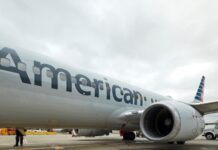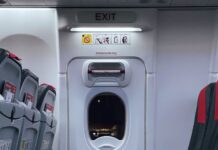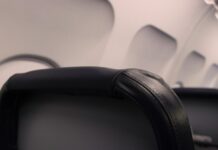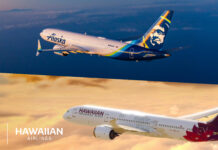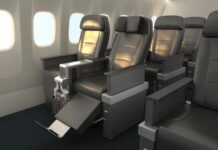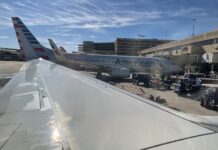 The seven airlines that are part of the trade group Airlines for America (A4A) are increasing the enforcement of its mandatory face masks policies and those passengers who do not abide may have their flying privileges revoked.
The seven airlines that are part of the trade group Airlines for America (A4A) are increasing the enforcement of its mandatory face masks policies and those passengers who do not abide may have their flying privileges revoked.
Alaska Airlines, American Airlines, Delta Air Lines, Hawaiian Airlines, JetBlue Airways, Southwest Airlines and United Airlines will be implementing the following policy updates regarding face masks:
- Preflight Communications: Each airline will clearly articulate its individual face covering policy in communications with customers, which may require passengers to acknowledge the specific rules during the check-in process.
- Onboard Announcements: Once on the aircraft, crew members will announce specific details regarding the carrier’s face covering policy including the consequences passengers could face for violating the policy.
- Consequences for Noncompliance: Each carrier will determine the appropriate consequences for passengers who are found to be in noncompliance of the airline’s face covering policy up to and including suspension of flying privileges on that airline.
“U.S. airlines are very serious about requiring face masks on their flights. Carriers are stepping up enforcement of face coverings and implementing substantial consequences for those who do not comply with the rules,” said A4A President and CEO Nicholas E. Calio, in a statement. “Face coverings are one of several public health measures recommended by the CDC as an important layer of protection for passengers and customer-facing employees.”
The measures are expected to remain in place throughout the COVID-19 public health crisis. In addition to enforcement of face covering policies, passengers may see several other changes and updates to the travel experience.
At check-in counters and gate areas, travelers may see agents sanitizing counters and kiosks. Some airlines have installed plexiglass shields over the counters to provide additional protection, and some have marked the floors to ensure appropriate distance is maintained.
All A4A member airlines have aircraft equipped with HEPA filters, which help generate hospital-grade air quality. The CDC has said that, “Because of how air circulates and is filtered on airplanes, most viruses and other germs do not spread easily on flights.”
U.S. airlines have implemented intensive cleaning protocols, in some cases to include electrostatic cleaning and fogging procedures. Carriers are working around the clock to sanitize cockpits, cabins and key touchpoints, including tray tables, armrests, seatbelts, buttons, vents, handles and lavatories, with EPA-approved disinfectants. Airlines have increased the frequency of deep cleaning procedures for both domestic and international flights. Carriers have implemented a range of policies, including back-to-front boarding and adjusting food and beverage services, to help allow for distancing between people.
As an additional layer of protection, A4A’s member airlines have encouraged the Transportation Security Administration (TSA) to begin conducting temperature screenings. Additionally, travelers are urged to stay home when ill and frequently wash their hands.
You Might Also Be Interested In
.



